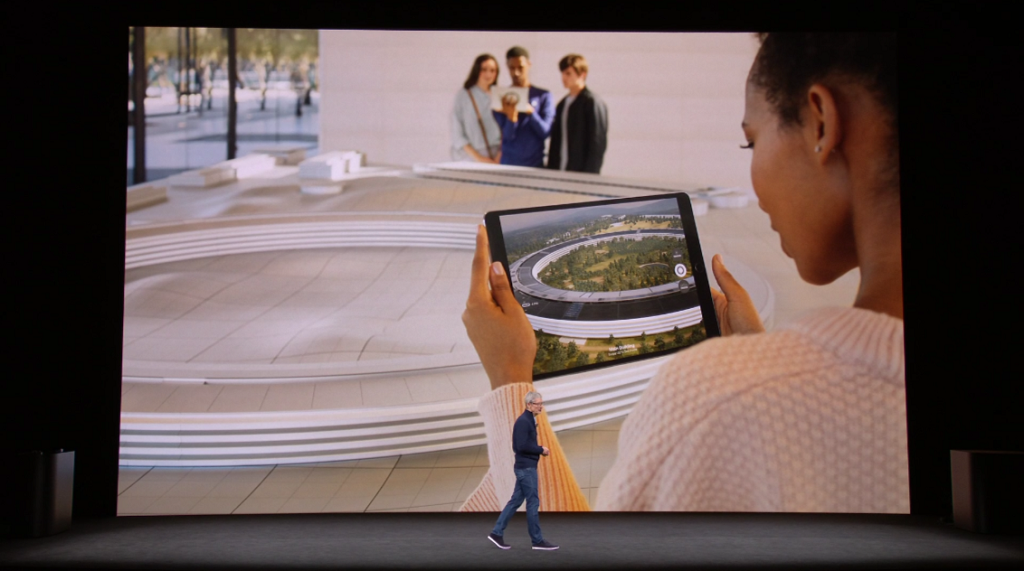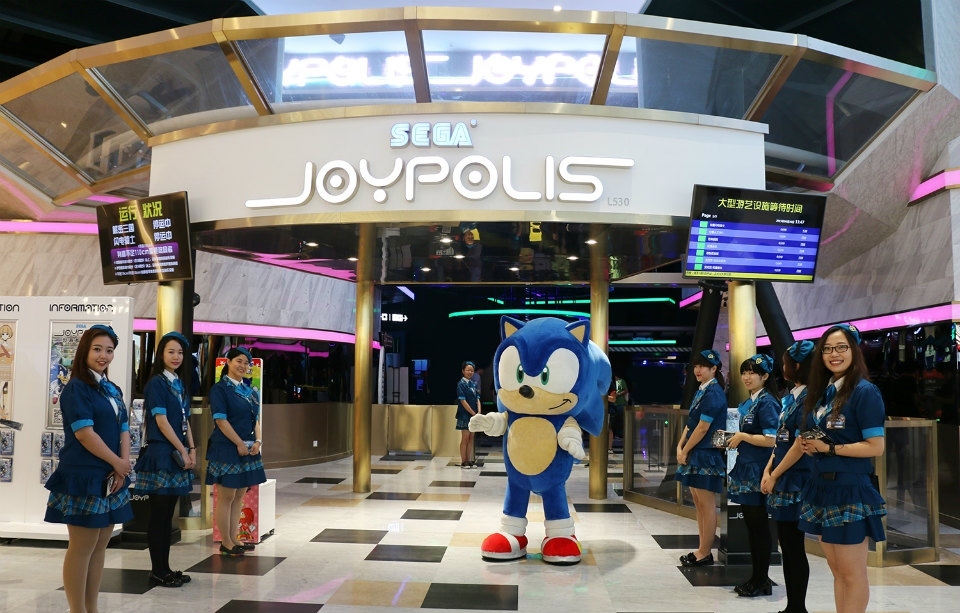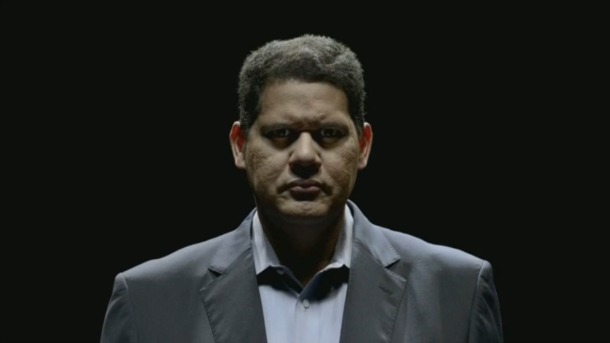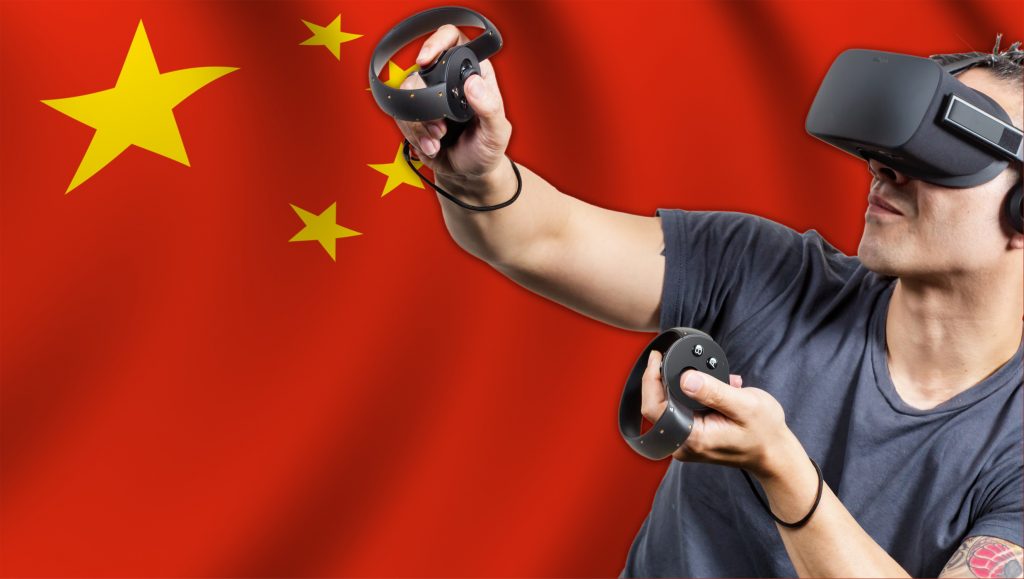
VR vs. 2017 (Predictably) – Part 2
Hello everybody and welcome back to this two-part VR vs. where I look over the results of last year’s predictions as to what 2017 would bring and see how I actually did in the great scheme of things. So far I’ve been pleasantly surprised by how successful I’ve been at being a technology prognosticator – you can click here to read part one. Now we go into what makes up the second half of the predictions, taken from parts two and three of the VR vs. Nostradamus series of posts. We start off with wires – or should I say the lack thereof.
Prediction: “Oculus And/Or HTC Reveal Viable Wireless VR For 2018”
Result: True
Let’s rewind back to the end of 2016. Whilst there had been talk about wireless, standalone or ‘untethered’ options for virtual reality (VR) there certainly hadn’t been a heck of a lot done about it yet. The first inklings that something might actually become of this was at Oculus Connect 3 where we got the first indication that Oculus at least were at least openly trying with the initial reveal of the Santa Cruz. A cobbled together prototype which was more a proof of concept than anything else.
Over 2017 we’ve had lots of wireless news to talk about mostly from the likes of TPCAST – we’ve got an unboxing video related to that particular bit of kit on the way, incidentally – and other ‘solutions’. But whilst there was nothing concrete discussed by HTC about a full-on wireless Vive until the Vive Focus, at this year’s event Oculus announced both the Oculus Go and the finalised Santa Cruz for this year which means another one in the win column for me.

Prediction: “That After This, Google Immediately Steal Their Thunder”
Result: False
Again, this might require some explanation. But during 2016 poor Oculus had a particular problem in that whenever they announced anything they ended up being undone by their competition in the following couple of weeks. Either the product was technically better or cheaper on price than the item they just announced. I ended up feeling kind of sorry for them as everyone started having a go at Oculus being expensive. They couldn’t do right for doing wrong it seemed.
As such, I was (regretfully) expecting someone, once the announcement above happened, to steam in and make Oculus look bad once again. As it happened I failed this prediction in about three different ways. The first was that whilst Google did end up announcing at Google I/O a standalone headset it was one to be made in conjunction with HTC Vive and Lenovo – and this was announced before Oculus Connect 4. So, I fail on time. Also of the announcements I believe the Go/Santa Cruz combo was actually received better than Google’s announcement. So I fail on popularity. And just to rub it in Vive then went on to abandoned the project! So I fail on that point as well.
The great irony after my prediction would be that it was, of all the companies involved in immersive technology, it would be Google who were the victims of having the rug pulled out from underneath them. Ambushed, as they were, on augmented reality (AR) by Apple’s ARKit and meaning they had to release ARCore not long afterwards in a manner that many outside the know would think to be a copycat move when it was Google who had openly been working on AR for some time with the likes of Project Tango.
Prediction: “Apple Waits”
Result: False
See previous. They did not.
This year was very much about AR for the firm with ARKit, but also other ventures. Including an AR experience at their visitor centre and even AR teddy bears in its stores.
That said it wasn’t as if Apple ignored the topic of VR completely. Multiple times throughout 2017 Tim Cook took time out to say that he didn’t have a lot of nice things to say about VR. Then again, Apple are not currently trying to sell products in that particular area. I think we all know that when they do they’ll change their tune. There’s things going on in the background, that at least suggest an interest.

Prediction: “Call Of Duty Or Battlefront Go For It”
Result: False
Oh, I was so hoping this would end up true. As I mentioned at the time it would greatly benefit VR if one or both of the big wartime first person shooters (FPS’s) threw down the gauntlet with an actual VR version, adaption or proper full on experience based off their series. No, Call of Duty: Infinite Warfare – Jackal Assault VR Experience doesn’t count. Do you even remember that? My point exactly.
When you think how much sway over gamers each brand commands, having them say “no, this is really cool – it’s the way to play” would be massive for the tech. Especially if they then delivered. But as it turned out we got pretty much bupkis from both. Battlefront never entered the conversation and all we heard about CoD was much speculation about what the CoD of VR would inevitably be and a whole bunch of PR waffle from others about why their product was going to be it.
As a brief aside: If you are in video game PR, marketing or you’re a video game’s director or something don’t say you’re going to be the next CoD or something. A) You’re not and B) it’s not very original at this point.
Prediction: “FOVE Are Acquired – And Probably By Samsung”
Result: False.
I’ll be honest. I’ve no idea how this didn’t happen. Everyone and their proverbial mother seemed to be bought by other companies in 2017. Considering the atmosphere I certainly thought going into the year, that considering their closeness, and as others began to buy up similar companies, that Samsung would finally bring eye-tracking firm FOVE under their wing. If nothing else than to protect their own interests. But no, they didn’t.
On checking we’ve not even heard anything from FOVE in a while, the last news piece we ran was in August. I still think this is going to happen down the line.

Prediction: “Bethesda Pulls The Trigger”
Result: VERY True
Pull the trigger? They let of an entire bloody salvo. Fallout 4 VR – Five stars. The Elder Scrolls V: Skyrim VR – Five stars. DOOM VFR – Five stars. I don’t know if Bethesda are necessarily happy with how things have been received in the launch period (and that certainly will be interesting to discover) but I don’t think any VR video game publisher or developer has had a such a golden period.
Additional aside: I’m aware not everyone agreed with the marks on the VRFocus reviews for the Bethesda trinity, so let me just address that momentarily as I don’t think that’s been done to date. People didn’t like that all of them were given five stars to which I’ll point out that the titles were judged on their own merits. Why a reviewer not give a game five stars (despite a slew of them for recent titles, it’s still quite a rare mark for the site in general) to one title because they we’d given a five star rating to another title recently? How would that be fair at all? Likewise, there was talk of the reviews being an earlier version of the title and not the launch version – which is obviously incorrect. The only way it was an ‘earlier’ version was that we received it earlier than the rest of you did, i.e. before release just the same as with a lot of other outlets. Although, in some cases we could’ve done with it a tad earlier(!) The guys played it often through the night to give you their impressions – which considering how poorly Peter’s been, was impressive. I couldn’t think of anything worse than being than suffering a respiratory issue when in VR. We dragged a Vive out to Malta so he could go into VR the moment we got Fallout 4 VR and he practically dragged a review out of his illness-wracked body. (I’ll discuss this in the second half of my Malta story in a future VR vs. later this year.) To be clear if we’re looking at an earlier candidate or demo that’s classified as a preview. Always, always, always. The other aspect to address was that people weren’t happy the reviewers didn’t mark titles down for issues that others found later, this was, if memory serves, particularly true of Fallout 4 VR. To which I will respond that the obvious reason it wasn’t marked down was because beyond any issues mentioned in reviews such issues were not seen by the reviewers. Reviewers can only critique or praise based on their experiences, not those of other people. I can understand if people are still unhappy with those answers but that’s the truth. Right, moving on!

Prediction: “China Rises”
Result: True
Where do we begin? We’ll we’d best start with the aforementioned Vive Focus which apart from having a very good name if we do say so ourselves (*gestures with head in the direction of our logo*) is being created directly for the Chinese market. But beyond that a lot’s been going on in China this last year in the field of VR. There’s a lot of money flying about. China is definitely a player. This last year alone VRFocus covered stories on:
- Yue Cheng Technology looking to bring premium VR films and experiences to China
- A VR sci-fi theme park being built in the country
- The news that HTC were testing Could VR services in China
- Digital Domain’s own VR film-related efforts there
- How VR use was on the rise
- How Jaunt brought Chinese language content to the market for the first time
- How new warehouse scale video games were coming to China
- That iQIYI’s video service launched VR content
I’m only up to June and I’ve skipped a few on the way. There’s lots going on and we’ll be looking at China closely over 2018.
Prediction: SEGA Properly Join The VR Party
Result: False
Yup. They’ve still not thoroughly jumped in. In fact, they barely waggled a naked toe in VR’s direction. Where the hell are all those things I listed in my subsequent Top 10 Most Wanted Titles from last year? I want my The House Of The Dead OVERKILL inspired VR adaption of Virtua Cop, damnit! SEGA. Hurry the heck up, and we’ll even forget the so called AR experience that we were told was coming last year at the San Diego Comic-Con only for it to sort of disappear. Was it the episode of the Sonic Boom television series (which is excellent by the way) shown in the 360 degree dome? Was it that they were using a green screen in the vicinity? We’ll never know I guess.
That said, SEGA’s Joypolis venues are hosting a number of VR experiences now – but I specifically wanted SEGA made (or at least published) video games. That’s a fail.
Boo.
Aside #3 and the last one I promise. You may remember my little rant about people calling the use of a green screen AR in a previous VR vs.? Well we had an absolute corker of one of those this week come through into our inbox just yesterday (at the time of writing) which was literally ‘use a green screen to put exotic locations behind you – this is AR’. Rebecca passed it on to me with glee. If you see this, please call this crap out for what it is.

Prediction: “VR Does What Nintendon’t”
Result: A 90 Foot High Neon Sign Of The Word ‘True’
Well, we had to end on this one, didn’t we? Oh Nintendo. You are so predictable when it comes to VR. No, we didn’t get VR on the Switch, and instead as predicted as Nintendo marched through 2017 raking in pots of money with their new hardware and taking home shipping containers rammed full of industry awards. But they also, as predicted, continued to be full of contradictions when it came to immersive technology.
At the same time as the bosses are confirming they’re definitely looking into VR in interviews and continuing to answer questions with similar answers in investor calls. At the same time as Pokémon Go is a technology defining (although whether that’s a good or a bad thing is a matter of contention) title for the whole of AR. Others figures in Nintendo continue to toe the same ‘we’re looking into it’ line in the same tone as a 5 year old being dragged off in a car has when folding their arms crossly and insisting “I don’t wanna go.” There might well be clues in the source code for the Switch, but ultimately Reggie still doesn’t like it. Miyamoto has not changed his opinion. Yet this is despite a Mario Kart VR experience lighting up the internet, oh wait… Bandai Namco developed that.
Start praying to your Pac-Man gods that they’ll do some more in 2018 for us. And bring them West too!

Finale: So, How Did I Do?
Yikes, this was loads longer than I intended. The final total is eight predictions found to be true and seven false – and I was even generous with a couple of those. Over 50% success rate! I’ll take that I think.
I’ll be back next week to begin this year’s predictions – goodness knows what they’ll be so I’ll see you then.
This article was originally written by the author for VRFocus.






![[ID: 97hDsbfkyFA] Youtube Automatic](https://lastminutecontinue.com/wp-content/uploads/id-97hdsbfkyfa-youtube-automatic-360x203.jpg)
![[ID: iccInW0wDRY] Youtube Automatic](https://lastminutecontinue.com/wp-content/uploads/2024/11/id-iccinw0wdry-youtube-automatic-360x203.jpg)
![[ID: 8M5KfB0Pw5o] Youtube Automatic](https://lastminutecontinue.com/wp-content/uploads/2024/04/id-8m5kfb0pw5o-youtube-automatic-360x203.jpg)
